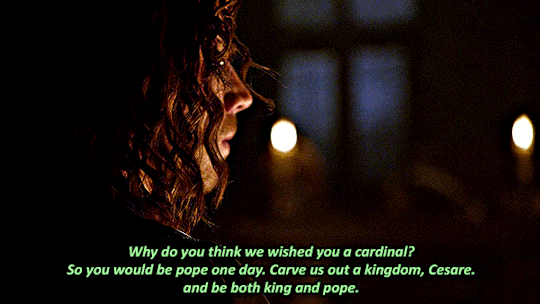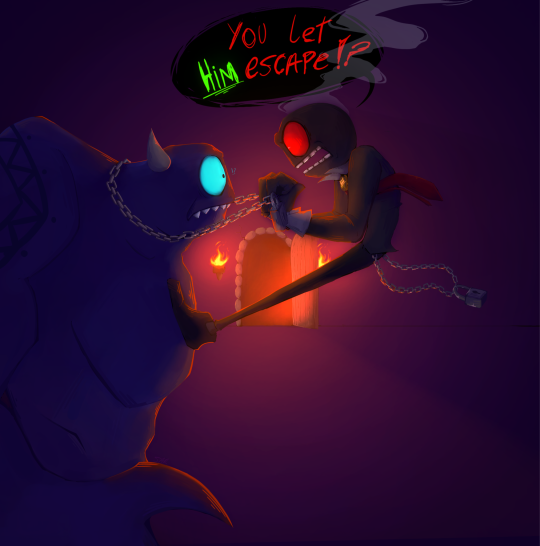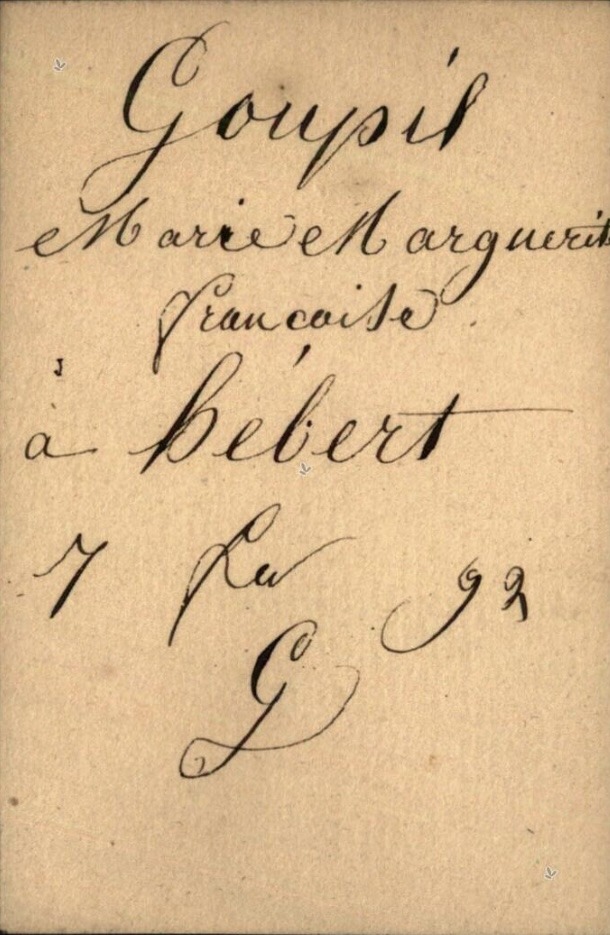#is that ironic? or just true?
Text
"I want Annabeth to be blonde :(" then pick up a PJO book and read it you dumb fuck
#pjo fans stop being weird about black annabeth challenge IMPOSSIBLE!!!!!!!!!!!!!!!#first off annabeths race isnt important to her story. annabeth could be any race. her skin colour doesnt actually impact her. her hair does#now im not blonde but im a white girl so let me explain why some pjo fans need to stfu. i have grade 9s. im called stupid for my appearance#im not insulted bc im white or bc i have blue eyes or brown hair. im insulted bc women are judged on their appearance. im insulted bc SEXIS#annabeth isnt really called dumb for being blonde. shes called dumb bc shes female. and ppl are more likely to stereotype women than men#this is especially true for black women! whatever sexism white women get is always horrifically multiplied for poc women#black hair frequently gets called unprofessional untidy unhygienic etc. its VERY likely that show annabeth has been called dumb for her hai#does this make the casting “accurate”? no. but castings don't have to be accurate. they have to ADD to the character.#annabeth being black ADDS to her character because it showcases how women (esp black women) are devalued for their appearance#movie annabeth wasnt bad for having brown hair or white hair she was a bad adaptation bc she was ooc#i just think its ironic that a core aspect of annabeth was being judged for her looks. and now show annabeth is getting judged for her look#like. you guys really missed the point here.#anyways disagree all you want but book annabeth is still blonde. no one is erasing her. theres a new PJO book w blonde annabeth SEPTEMBER 2#GO READ CHALICE OF THE GODS IF U WANT BLONDE ANNABETH OMG! adaptions and source material can be separate and coexist!#rant over sorry#pjo#percy jackson#annabeth chase#pjo show#percy jackson and the olympians#the lightning thief#discourse#shitpost#percy jackson show#pjo discourse#riordanverse
440 notes
·
View notes
Text
Cap should be allowed to teleport to the rock with his transformation lightning. I mean that's where it's coming from, after all.
He would use it to get out of so many situations XD.
Batman: captain, do you have a minute to stay after this meeting?
Billy, going to be late for school if he doesn't hup to: um haha sorry the wizard wants me back at the rock I'm already pushing it hahaSHAXAM
The wizard, looking up from his orb: *raises an eyebrow*
Cap, transforming back with more lightning and rushing for his bag: I'm sorry I'm sorry Mrs Ermine is going to KILL me if I'm late again this week!
The wizard, to his rapidly retreating back: this is the seventh time this month you've used me as an excuse.
Billy, halfway down the hall of sins, voice echoing: I said I'm sorrrryyyyyyy!!
Batman, left all the way on the watchtower: :|
#This is how he avoids all the fangirls and reporters XD#Freddy gets a video of cap doing the ✌️ *fades from sight* vine but it's a huge crash of thunder#It has the power to make everyone assume lightning is how cap arrives in earth (which is TECHNICALLY true)#People try to count the lightning strikes like they're kids trying to see how close the storm is but there's just too many lol#In the end they give up counting to try and figure out when caps coming or going and crime just tanks in lightning storms#Ironically the lack of crime means that's the time Billy transforms the least XD#Like I know he uses portal doors but they never get enough use anyway and the champion of magic guardian of the rock#probably needs emergency access. Plus you can't take anyone else the lightning way and you'd probably kill them trying!#captain marvel dc#dc captain marvel#shazam#billy batson#Dc the captain :D. I like his new name I hope they keep it#Anyway#rock of eternity
549 notes
·
View notes
Text



#mtas#my time at sandrock#mtas wei#mtas builder#fanart#i found my true love target ; v ;#the smiling type is the ones that truly snatch my heart#they bring me the utmost joy#as much ironic it is unsuur makes me unsure of the rest of the stage after confession#i just thought i marry him in case the builder parents come and there would be some kind of scene over it like in portia#till the very last minute my heart was somehow still half in about it#tho in the game unsuur is read very close as 'unsure' i actually pronounce it differently bcs it's close to something in my language#unsur : means element; i thought that's nice bcs it feels closely to rock related thing#https://translate.google.com/?sl=id&tl=en&text=unsur&op=translate#if anyone even interest the slightest on how it sounds when pronounced by me here's the google translate link#but yea i'm dying that it is literally being pronounced 'unsure'#pls help him he just needs to be given a chance to command so he can learn to do independent thinking from experience#like yeah probably there would be lots of mistake at first#but u're like a mom justice who decides everything for the child so when u ask the child they just be like don't know ask mom fshdshd#he needs to be put out there#or had that been done justice if so i am sorry ; v ;#but seriously i'm dying when i kept adventuring with justice and logan and unsuur was just told to wait like a puppy fhsdh#he needs to be taught how to decide things by himself seriously#it's honestly hard to write unsuur's character#like no matter how u tried somehow it doesn't feel as close as funny or as serious deadpan like the original#wei here is like a piece of white paper i can scribble whatever i want#it's unexpected#but i ended up liking wei
293 notes
·
View notes
Text
God it just hit me.
Names are power in VnC. We call the piece of the world formula that defines a vampire their "true name." Learning and altering a vampire's true name gives you near-absolute power over them. Vanitas hides his old name as part of his "Vanitas" persona—a defense mechanism to hide his vulnerable self.
And names are an axis of discrimination too. The main way we've been examining discrimination against the dhampirs is through the lens of vampires refusing to call them by their names. And Luna, the perennial outsider, seems not to have been given a real name. They certainly didn't have a name that they liked or identified with for most of their life.
So with all that context, even more than it might be in another series, Teacher's whole name shtick becomes such an insane power move. He changes his name constantly and will brutally punish anyone that gets it wrong. Nobody has the power that would come from knowing whatever his first/true name was. He has the physical and social power to punish and correct anyone that doesn't call him what he wants to be called. He is in complete control of how people address him, or at least close to complete control, which is such a big deal within this story.
#this was just gonna be a post about how it's interesting that names are the vehicle through which dham discrimination has been emphasized#and then I thought of teacher when I was thinking of counter examples#and then this hit me like a bus#if power comes from knowing someone's true name. and safety comes from hiding it#and calling someone what they want to be called/calling them their name is a sign of respect#teacher's found a way to ensure he gets all the safety AND all the respect#(if only out of fear)#also I realize me calling him teacher through this whole post might be a little ironic#but at this point it's just automatic#vnc#vanitas no carte#the case study of vanitas#vnc spoilers#vnc 62#<<not super directly. but with the dham name thing#english major hours#teacher my beloathed#comte de Saint Germain#the shapeless one
279 notes
·
View notes
Text
Irondad fic ideas #145
Scientists at Stark Industries frequently make groundbreaking discoveries. Since the work is collaborative, they also usually have long lists of acknowledgements at the end when publishing their research
Post-NWH fic where someone notices a pattern in the published research from SI: for a period of several years, nearly every paper, from every department in the company, expressed gratitude to... empty space.
The name is not there. Clearly, it's meant to be. The pattern starts slow, with just a few papers, but it's soon present in every single one, and the praise is effusive. (Even during the Blip, researchers thanked this mystery person posthumously)
Then, not long after the return of half the population, the pattern just stops. No more mentions of the mystery team member. No more gaps in the acknowledgements page
Maybe it wouldn't be a big deal, maybe the whole thing would just stay as a niche mystery in the tech world... Except it can't. This question can't stay a small thing
Because Tony Stark, who has never worked with anyone except for occasionally Bruce Banner, thanks this empty space in his published work too.
Just who exactly is this person?
Bonus:
The media dubs the missing person the "Stark Ghost"
Extra points if this fic follows either MJ, Ned, Pepper, a random curious citizen, a lowly SI worker, or Tony himself as they try to find answers
#in this fic tony is alive because I said so#irondad fic ideas#irondad and spiderson#iron dad and spider son#peter parker#tony stark#answering the question: what if fanon about peter being a beloved si intern were true AND nwh happened#(AND TONY WAS ALIVE)#what then?#queueueueue#weekly reminder that I love you all but am too busy to be human :)#fic ideas still postponed but you can send asks if you want I just won't see them for a while#see announcements
359 notes
·
View notes
Text










“Cesare wanted his brother dead. He waited for the moment when he felt it was right. He knows that it will change him forever and it will never be the same. A part of him thought it was the right thing, and part of him did it out of jealousy and envy. Once he made up his mind, it was set. He didn’t want to talk anymore, because he knew Juan could change his mind. But I think there was something chemical in his hatred for his brother as well that's always been there.” — FRANÇOIS ARNAUD explains Cesare's dark turn.
"The final confession is his one chance to unburden his soul and he’s nice. He forgives people. He says he’s been in pain all this time, he notices when everyone else is concerned about him and their own hurting and their own pain. It proves that he’s sort of self-aware and probably hasn’t had the best life, so it kind of makes it even worse that he gets killed." — DAVID OAKES on Juan's finale moments.
SPECIAL FEATURES || BEHIND THE BORGIAS: Juan's demise
#can't you tell this is my roman empire?#rodrigo i love you but how does it feel to be the worst parent ever?#he underestimated cesare's determination and twistedness ohhh how it backfired. if only cesare knew he was the true heir from the beginning#“something chemical in his hatred for his brother[..]that's always been there” he has always seen juan as an obstacle rather than a brother#i just love their insights they provied...the borgias cast you will always be famous#the borgias#theborgiasedit#francois arnaud#cesare borgia#juan borgia#jeremy irons#perioddramaedit#david oakes#cinemapix#tvedit#tvarchive#filmtvsource#perioddramasource#weloveperioddrama#by jen
29 notes
·
View notes
Text
I like to imagine my bisexuality as two roommates who watch TV together and get into very passionate arguments about which actor is hotter and which you'd want to get in a fist-fight with at a bar
#bi#bisexual#lgbt#lgbtq#lgbt memes#'the idea that being bi is half gay half straight' is unfortunately not true for me#gay side is elton john and striaght side is uh. guy fieri#tbh i think queer people ought to just experience themselves even if it's 'unconventional' or 'harmful'#imagining my bisexuality doesn't look like one thing and honestly it seems almost ironic to expect ONE thing from bi people#EDIT FOR THE FIRST TAG: i meant to say 'bisexuality is half-gay half-staight is WRONG' is unfortunately not true for me
130 notes
·
View notes
Text




I have no recent food for you all and I think I never got around to posting these so have at it- old geometry dash gijinka designs that I might revisit some day-
#this is the true test to see if those who follow can truly withstand the depths of my hyperfixations#also yeah there is a Tumblr sexyman design#which is ironic given by the fact that I've been nagging bout them for a while now#and the main jax disliker OKAY LISTEN THIS IS OLDDDD#The twink design is deeply rooted into my soul i cannot just not make a Tumblr sexyman#shush#faceee rambles#faceee art#geometry dash fanart#y'all are not ready to see the rubrub design good god......#this was back in the good ol age of me segmenting each and every finger
53 notes
·
View notes
Text
real talk why did they have to make the Rogue Gambit Magneto triangle
like-
my girl Anna Marie may be a former terrorist but she would NEVER do that shit
IDC IF MAGNETO IS Y'ALL'S DILF OR SOME SHIT SHE WOULD NEVER REKINDLE SOME STUPID PAST RELATIONSHIP (THAT WAS ALSO KIND OF 🤢 CUZ ERIK WAS AN OLD MAN AND SHE WAS A TEEN) JUST BECAUSE SHE CAN'T SKIN-ON-SKIN CONTACT REMY
LIKE BRO
THEY LITERALLY KISSED (I DONT CARE IF ITS NOT A REAL KISS THEY KISSED) IN EP 3 I THOUGHT THEY WORKED THE TOUCH THING OUT???? AND THEN YOU'RE TELLING ME ANNA HAS SOME EMOTIONAL SHIT W ACTUAL PHYSICAL TOUCH AND THAT'S WHY SHE WENT ON AND DECIDED TO REKINDLE HER RELATIONSHIP W MAGNETO
ain't no way. ain't no fuckin way
Brother I don't care if it's for some stupid character development or some comic callback YOU COULD'VE DONE IT BETTER
YOU COULD'VE MADE ANNA REALIZE SOME THINGS WERE DEEPER THAN SKIN IN ANOTHER WAY
NOT WITH OLD MAGNET MAN 😭 (sorry Erik but still.)
Now Remy's dead and Anna's grieving and coping in a non-healthy way.
#and this is ironically from someone who ships their oc with remy lebeau#rogue and gambit being married in the comics is our lifeline at this point#why marvel why#y'all said Romy was one true pairing was that a lie? 😭#never should've brought back that rogneto from the comics#x men#x men 97#gambit#remy lebeau#rogue#anna marie darkholme#magneto#just to be clear im talking about this series not any other continuity cuz idk what Anna did in the comics or something that relates to NTR#also didn't Magneto not know who Rogue was in the original?#so sorry for rambling outta my ass so late
22 notes
·
View notes
Text
"If you think X, you don't understand Umineko."
I see this a lot, used in various ways, ranging from being applied to people who express horrific, bigoted opinions to people who have less-popular interpretations of certain characters or plot points. I've also seen it used on people who dislike certain characters heavily (for example, people who call George a "child predator").
However, at what point does someone's opinion fall outside of understanding Umineko, and fall into a misinterpretation of the work? What even qualifies as a misinterpretation - when someone goes against the author's intentions? When someone goes against the general beliefs of the fandom? Then, when people interpret George according to his on-paper age gap with Shannon, rather than the likely-intended, far less horrifying gap, do they not understand Umineko? When people interpreted Sayo as trans, against the backlash and transphobia the fandom was going through after EP7/EP8 released, did they not understand Umineko?
Someone's understanding of a text is not an objective thing that can be measured, but a subjective one. Everyone's understanding of Umineko is different. Ryukishi himself even says "In other words, you can enjoy it even if you don't answer correctly, and I want you to enjoy it." He gives this sort of sentiment multiple times: even if someone hasn't come to the "true answer", if they thought it over and understood it in their own way, that's also fine.
That's why, rather than "you don't understand Umineko" because of a disagreement with someone's opinion, I'd rather approach it differently, and engage with their perspective. If there's something flawed or bigoted in it, I'd rather point that out, rather than focusing on a nebulous concept like "you didn't really understand the text". It's tempting to do so, but there are better and more constructive ways to engage in discussion.
#umineko#umineko no naku koro ni#umineko spoilers#this goes for more than just umineko#but this is the fandom i see it in the most#which is ironic considering how much the text tries to leave room for multiple truths#even the clear-cut confession in the manga seems out of place and anthithetical as much as it tries to canonize certain aspects of the stor#ange herself receives the single truth - the true answer- and then makes her own interpretation
20 notes
·
View notes
Text
PJ and Hazel is highkey Evan Hansen and Jared Kleinman coded except their personalities switch and both of them are canonically queer
#bottoms 2023#bottoms movie#hazel callahan#pjhazel#pj bottoms#I'm sorry#i just had to say it#it's true#they hated jesus because he spoke the truth#jared is only canonically queer in the movie tho which is ironic asf
57 notes
·
View notes
Text
One of my favorite headcanons is the one where Danny is just completely oblivious to everything concerning and dangerous happening around him. He doesn't have a concept of safety and doesn't even treat his injuries seriously. Because why would he, it isn't going to kill him (heh).
And considering Danny, the stupid teenager that grew up in a household with absolutely no safety precautions that also doubles as a mad scientist's incredibly dangerous lab to another dimension full of unknown, possibly dangerous beings, that has dangerous chemicals and experiments just right out in the open. I think he would have no concept of safety. Like at all. Boy would walk into a house blazing with fire thinking "who's cooking?", then stroll out of still burning house thinking "what smells so good?" when it's literally his flesh burning.
Adding on to this, Being a teenage half-dead superhero being hunted by his own parents and the government means everything would be so much worse.
Oh, Skulker wants his head and pelt on his wall? Haha in your dreams skulker. The government wants to experiment and dissect his? Well, their suits are ugly and they suck. All his rogues and villains literally try to murder him (again) and they literally come from the hole to hell in their basement? Well, they should come when he doesn't have five assignments due tomorrow. His parents actively hunt and maim his alter ego and talk about destroying him during dinner? My parents love me and they would never hurt me if they knew it was me.
So basically just give me a Danny completely oblivious to the very dangerous situations he's in and the very serious and bloody injuries he receives, and that's all because a)He's very much used to constant danger throughout his life so he has no concept of safety. and b) He's a stupid fucking teenager.
#danny phantom#danny fenton#dp#I mean#he's a stupid teenager#he would jump off a building because of a dare#he reminds me of that meme where the house is on fire#and the dog in the middle is just like#this is fine#but danny very much means it#also danny making every responsible adult grow grey hairs#this child should not be in these kinds of situations#it is very concerning#he would have the weirdest excuses for his injuries#that are very much true#So you broke your arm because you slipped and almost fell in your family's iron maiden
392 notes
·
View notes
Note
hebert had a wife and daughter?
Indeed he had!
Hébert’s wife’s name was Marie Marguerite Françoise Goupil. I haven’t found better information regarding her birth more than that it happened in Paris in ”the first days of 1756” (she was in other words one year older than her future husband). I also haven’t found out which of her three names was her first name, though all texts I’ve checked settle on Françoise, so I’m also going to call her that.
Françoise, according to Paris révolutionnaire: vieilles maisons, Vieux papiers (1903) was the only child of Jacques Goupil and his second wife Marie-Louise Morel. The former had been the owner of a not very successful lingerie business which his wife then took over after his death. When Marie-Louise died as well, on July 16 1781, she had for a while lived with and worked as a nurse for the abbot Vaudair, who it is possible her daughter then turned to when she a while later started working for religion. Françoise became a nun of the Couvent des Filles de la Conception on rue Saint-Honoré, the same convent where Élisabeth Duplay claimed she and her three sisters took their first communion.
In June 1790, municipal commissioners presented themselves at the convent to hear its inhabitants’ declaration on whether they would stay there or leave. Out of the 24 nuns, only Françoise responded that ”she could not make up her mind at the moment,” the other 23 declaring that ”faithful to their wishes, they wanted to live and die in their state as nuns.” A year later, July 1 1791, Françoise’s name no longer featured among the convent’s inhabitants, meaning she had left it, be that out of free will or her sisters kicking her out for what she had said the previous year.
Hébert’s fellow journalist Louis Marie Prudhomme claimed in his l’Histoire générale et impartiale des erreurs, des fautes et des crimes commis pendant la Révolution (1797) that it was while at La Société Fraternelle des Patriotes de l'un et l'autre sexe Françoise for the first time met her future husband. Their wedding was held in the parish of Saint-Gervais on February 7 1792 (see the image below). After the marriage, the couple settled on Rue Saint-Antoine.

According to the same Prudhomme, Hébert was however not heads over heels in love with his wife:
[Hébert] married more to appear to have carried out an act of good citizenship than out of esteem and love for his wife. Nevertheless, they got along quite well, although she was ugly. It was a large spider that came out of the convent of the Assumption or the Annunciation. […] A wonderful revolutionary frenzy took hold of the couple, and they were faced with the people, who shouted bravo!
Hébert’s own letters would however appear to contradict this:
My situation, although difficult given the immensity of occupations with which I am responsible, becomes happier every day. I must inform you, my good friends, of the alliance that I am contracting with a very amiable young lady of excellent character. It would be enough of these advantages and were she devoid of all resources, the one I love would not be any less dear to me; but to fill my happiness I find enough fortune with my wife to be reassured about her fate if death separates us. I therefore ask you, my dear sister, to give me your approval and to ask the same from Boissierre. […] I am very assured that you will sympathize with my lovable pretender. She is very spiritual. Speaking in the old style I would say that she is comme il faut, but as I have been assured that you are as patriotic as me I only use constitutional expressions. This demoiselle is called Goupil: she has spent her entire life in the convent up until now. By her personal qualities and by the advantages she enjoys she could claim to someone much richer than me; but my good fortune gave me preference over several competitors. You see, my good friend, that not everything in life is bad and that fate has finally tired of persecuting me and through consistency I have been able to create a pleasant and lucrative position for myself.
Hébert in an undated letter to his sister, written somewhere in 1791
I am healthy and very happy. United with a woman who combines all the good qualities with the charms of the mind, whose education is completed, whose character is perfect, I lead the sweetest and most peaceful life.
Hébert in an undated letter to his sister, written somewhere in 1792
Réné Desgenettes, who in his memoirs claimed to have met Hébert in late 1791 (though it was most likely early 1792) also hints at a loving relationship:
After my return to Paris, by the end of 1791, I had met at la Grave, or rather under the Saint-Jean arch, my fellow patriot and almost fellow student Hébert, who showed me with satisfaction his feelings over seeing me again, how much he had often regretted that I had been absent from the capital during the first days of the revolution.
”You would have surely played an important role,” he told me, ”but now that you’re here everything is almost over. I live pretty close to this place, rue Saint-Antoine, opposite the passage of this name, which leads to rue du Roi des Deux-Siciles. My little apartment is on the third floor at the front. I have not at all forgotten your constant kindness or what I owe you. I want to speak of money so generously lent, because I would not dare to recall and could not count how much you often gave me at the traitors of the rue de la Parcheminerie, de Mâcon and de la Grille du Carrousel. Without you and the honest patriots from rue des Noyers, I would have starved to death… I can’t say, monsieur, which hours I will be at home, where I still dine everyday, and where I would consider myself both happy and honored to find you. But you will be sure to always find my wife there, because I’m married. Madame Hébert is a former nun from Conception-Saint-Honoré, young and very spiritual. Despite her burning patriotism, she has kept a lot of piety, and considering I love her so much, I never contradict her on this point, contenting myself with a few jokes.” I never answered to this invitation, nor did I find the occasion to see Hébert again after the end of 1791.
From the summer of 1792, we have two letters Françoise wrote to her husband’s sister, which they too seem to indicate a happy marriage:
To mademoiselle Hébert the older in Alençon
Paris, 24 July 92
We were firmly convinced, my husband and I, that you received the newspaper as well as Mr. Desnos. M. Hébert had taken all the necessary means for this; but we had the misfortune of associating ourselves with the biggest rascal in Paris, who deceives us in every way. It is therefore not surprising that you were deprived of the papers he was responsible for sending you. We are ready to leave him and you will receive what you want without fail, I hope. We would already be on top of our affairs without this man, hardly worthy of a partner as upright as my husband, who has been fooled ever since he started working; but whose well-known probity and frankness made an infinitely honest young man desire his association. So we will work through new charges and I hope that this time we will not be unsuccessful. If M. Hébert is good enough to make his happiness consist in having me, it is indeed me, mademoiselle, who without grace can certify that I am perfectly happy with he who never ceases to everyday give me new proofs of his tenderness. I have carried a precious token of him in my belly for three months now, he wants the child to look like me, and I want it to look like its father, this, mademoiselle, is the continual subject of our differences. We agree more willingly on the desire to have you as a witness of our love, it will not be up to us unless it happens soon. You are very worried about the dangers of the fatherland. They are imminent, we cannot hide them: we are betrayed by the court, by the leaders of the armies, by a large part of the members of the assembly; many people despair; but I am far from doing so, the people are the only ones who made the revolution. It alone will support her because it alone is worthy of it. There are still incorruptible members in the assembly, who will not fear to tell it that its salvation is in their hands, then the people, so great, will still be so in their just revenge, the longer they delay in striking the more it learns to know its enemies and their number, the more, according to me, its blows will only strike with certainty and only fall on the guilty, do not be worried about the fate of my worthy husband. He and I would be sorry if the people were enslaved to survive the liberty of their fatherland, I would be inconsolable if the child I am carrying only saw the light of day with the eyes of a slave, then I would prefer to see it perish with me. I gave Mde Pelletier the papers for you that I haven't through up much since M. Desnos left.
I have the most ardent desire to see you.
Mademoiselle and dear sister
Your very humble servant
Goupil… Hébert
My husband tenderly embraces you as well as your sister, whom I beg you to accept the assurance of my very sincere feelings.
To Mademoiselle Hébert the older.
Rue de la Mairie, Alençon, département de l'Orne.
Mademoiselle and dear sister-in-law,
I don't know what to attribute your long silence since last time I had the pleasure of writing to you; but it surprises and distresses me, I would have already complained if my since five months back very bad health would have left me that possibility. My husband, who was chosen by his section to serve as city commissioner on the night between August 9 and 10, has run the greatest of risks. He had the pleasure of rendering services to his fatherland, and always with that noble disinterestedness that you know from him. He has done and still does good without respite, he has seen and still sees intrigue rise up, and modestly remains Père Duchesne, a poor newspaper seller. He stood for election and was undoubtedly well worthy of becoming a member of the Convention; but he believed he had to hide nothing of the truth, more than once he made the intriguer who enjoyed a great reputation turn pale, he seemed too pure and too formidable to those who had influence in the nominations, and to the great astonishment of the brave sans-culottes, he himself is still a brave sans-culotte, which is enough for my happiness. Satisfied to know my husband was worthy and capable of doing anything to be satisfied, his hands remained pure like his soul and were not soaked in the blood that flowed in the prisons. For my part, I suffered from such a great horror that I almost lost my life; I believe that the law alone can strike down the guilty, and until then I will cover them with my body. All that can console me in this tragic event is that the names of those who are its authors are already in execration and that history by transmitting them to posterity will justify the people of Paris who has lost nothing (it must be said) of its urbanity. You would oblige me infinitely if you could tell me if the former Viscount the huntsman Lord of Carrouge has emigrated. I suspect that he has and if I was certain of it I would put an opposition against his property as he owes le 600 livres. My husband, who loves you very tenderly, says a thousand tender things to you and to your sister, and I ask you to believe me, both of you, with a very sincere attachment.
Mademoiselle and dear sister-in-law .
Your very humble, .
Servant G... HÉBERT.
My address from now on will be:
Cour des Miracles rue de Bourbon Ville Neuve.
A few months later, Réné Desgenettes claimed to have run into Hébert and been invited to dinner yet again, and this time he did follow through with it, resulting in this very long anecdote:
On February 24 1793, I spotted him, on rue Saint-Honoré, part of the procession bringing the remains of Pelletier de St-Fargeau to the Panthéon. […] Hébert, who had noticed me as well, dispatched himself from the group, approached me, shook my hand roughly and said: ”Where in the devil’s name do you live?”
”Rue du Paradis au Marais, n. 3.”
”I have important things to tell you and still live on rue St-Antoine.”
I still refrained from visiting Hébert. However, after a very few days, I learned that a gentleman of fairly good appearance, well dressed and calling himself substitute deputy of the Commune, had come to ask for me, and that he seemed upset for not having met me. Thinking there was no way to back down, the next day, around five o’clock, I went home to Hébert, where I found his wife, the former sister Goupille [sic], who, while waiting for her husband, occupied herself with preparing a rather delicate dinner, because the orator loved good food. Madame Hébert received me very well and told me her husband so many times had spoken of me with affection, that we were two old acquaintances. I approached to contemplate an engraving based on the beautiful painting by Titian or Paul Veronese, showing Jesus Christ with two of his disciples at Emmaüs’, when I noticed that Hébert below it had written: the sans-culotte Jesus dining with two of his disciples in the castle of a ci-devant…
”Here you see,” Madame Hébert told me, ”one of these bad jokes my husband often allows himself to make against religion, as a result of a detestable habit I have no hopes of curling him from... I am, monsieur, very much attached to Christianity… It’s our religion at its most beautiful, because I don’t subscribe to everything… I preach to the Jacobins, in the society of our sisters, the same doctrine that abbot Fauchet preach to our brothers at their reunions. He is a great and true apostle who inspired me with a perception of the enthusiasm which animates him, and I have reason to believe that he is also not dissatisfied with the zeal with which I seek to imitate him. I know all the advantages that the Bishop of Calvados has for me; he owes them to nature and to his superior talents, because he is a very handsome man, and everyone agrees that he is also very eloquent.”
Hébert arrived at six o’clock. Before sitting down at the table, where we then stayed for three hours, he took from a secretary a certain number of gold francs, which he handed over to me like an old debt with a thousand thanks. […]
Let us [said Hébert] speak a bit about Alençon and the first time of our youth. Madame Hébert will see that I have hidden nothing from her about the time of my life when it has been claimed that I was a scoundrel. You surely remember, monsieur, that upon leaving college, where I quite simply had the well-deserved reputation of being lazy and mischievous, I had the misfortune, or perhaps the good fortune, to fall out with la justice?
R.D.G: I remember it well.
Madame Hébert: But that is always very grave.
Hébert: This was also very grave, because the bailiwick of Alençon condemned me to banishment; but I appealed to the parliament of Rouen, which did not confirm the sentence of the first judges.
Madame Hébert: I’ve only ever known of this in a rough and very imperfect way.
Hébert: Well, you will know, my good friend, that in the town where monsieur and I were born, women have always had a great reputation for gallantry. Now the widow of an apothecary, who had been accused of bigamy, had in turn many lovers. In the front line there was a doctor who was very handsome, and after him, living under the same roof as the lady, was her premier garçon, as they expressed it then, and then finally the man who managed the very busy pharmacy. A rivalry which existed secretly between the doctor and the pharmasist broke out one day with so much fury that the doctor murdered his rival...
Madame Hébert: The horror! How did he kill him?
Hébert: The doctor took an iron or copper pestle, and delivered several strong blows to the head and across the face of my poor friend L..., who was on the point of being trepanned. However, even before public rumor got around, the king's prosecutor was seized as suspect in this criminal matter, it was dormant or rather stifled by a transaction which was attributed throughout the city to the conciliatory spirit of M. Desgenettes, your respectable father. Doctor Cl.... however, had aggravated his crime, because he was closely pursued, it is true, sword in hand, by the brother of L..., employed on the farms, he had tried twice to kill him. Outraged with rage upon learning that just revenge was going to elude the L... brothers and their friends, I drew up a note which was posted at the doors of the main church, the commissary, the courts and other places.
Madame Hébert: What did it say on the note?
Hébert: It said: ”Sentence rendered to the Supreme Court of Honor which condemns Doctor Cl... to the pillory of infamy, for compensation, etc. Then I drew two bloody knives in a saltire, with this motto: Olim veneno, nunc cultro.”
Madame Hébert: Which means?
Hébert: Formerly with the poison, now with the knife.
Madame Hébert: Is that right, M. Desgenettes?
R.D.G: Yes, madame, and if you want a different version: ”He has replaced the knife with the poison.” Nevertheless I must have the honor of observing to you, as your husbands already knows, that the doctor did not use the knife.
Hébert: The knife made Cl... more odious, and that's what I intended. The assassination is therefore tolerated by a court which had just hanged two unfortunate people, for having burglarily stolen forty sous from a church trunk, which I would happily call provocative, since it jutted out onto a main road. The veil of oblivion is extended over a crime that was to be punished by the torture of the wheel, and here I am, for a placard which repaired the wrongs of justice, extraordinarily prosecuted, and decreed for personal adjournment . This is not yet enough, and both God and the devil are invoked against me.
Madame Hébert: You are aware, my friend, that all justice emanates from God; but the possible intervention of the devil in a judgment rendered by men is a superstition that I reject, although you have sometimes regarded me as superstitious. Monsieur, she said, addressing the author of these Memoirs, I am not superstitious, but no one is more penetrated than me by the power of God and the ineffable benefits of the religion of Jesus Christ... Is it not the Savior who said to men: You are the children of the free woman? I have never blushed over my [connection to] the first estate, and admit it in front of everyone. I still keep, and you have it before your eyes, the bed that I had at the Assomption; when it becomes that of a mother, it will change in neither shape nor color... My principles are still the same as those of Sister Goupile [sic]. But, tell me, Hébert, please, how was Satan brought into your business?
Hébert: Because it was brought before the official of Seez, and the general vicar and canon of the cathedral, who presides over this ecclesiastical tribunal, launched a monitory against me. This act fulminated in the sermon in the parish church of Notre-Dame d'Alençon, with an apparatus and ceremonies borrowed from the inquisition, which filled the common people with terror, and part of the population barricaded themselves in their homes, at the the onset of night, while the proud men of the city, and especially the armed butchers, searched everywhere for the werewolf. You know, monsieur, that they are a brutal and even ferocious type of man. The fanaticism of butchers has long been maintained in our city, by making them appear with their cleavers and their dogs in the procession of the little Corpus Christi, in memory of the assistance they had given, in 1500, to the Catholics against the Calvinists, then very numerous and very powerful in our country. Do you remember, monsieur, seeing this ceremony?
R.D.G: Yes, monsieur, and to have seen at the head of the butchers, with his sword raised and his arm bare, a Malêfre. This gentleman who, I believe, lived in Seez and had a stronghold at the gates of Alençon, was descended from the one who first commanded the butchers in this ceremony. The dogs had been removed, because they bit those of the assistants who stepped on their feet, and because they howled in a terrible manner when the culverines of the castle came to shoot to salute the Blessed Sacrament.
Hébert: If the butchers, who were pleased by my known cheerfulness, had suspected me of being the author of the placard, I would have been very uncomfortable, and if they had been convinced of it, I would perhaps have been treated like the werewolf that they wanted to skin like a calf... Barricaded at the house of my poor mother, who borrowed books for me from all directions, I acquired this profound knowledge of history that deigned to grant me. My misfortunes in Alençon, repaired a little in Rouen, led me to Paris, and you know, very roughly, what the rest of my life was like.
Madame Hébert: It was during your debut in Paris, my dear friend, that you were the most silent…
Hébert: However, I had no reason to keep silent about the fact that for a long time I had struggled with the devil by the tail, even up to the time when I obtained a small job as a tobacconist at the Théâtre des Variétés. Yes, I suffered from hunger, thirst and cold for a long time. You are not unaware of the services rendered to me by Monsieur; I also had many obligations to the Parisot hairdresser on rue des Noyers, as well as to his wife. This graceful couple reminded us of the wigmaker, the Love of the Lutrin, and his wigmaker... We still had charming neighbors, the two daughters of the butcher across the street from Saint-Jean-de-Beauvais... Then, close to that of the English, this woman who loved you so much...
Madame Hébert: Is it so, monsieur, that you also have a good friend (girlfriend) in the quarter?
R.D.G: No, madame, but I often chat with a rather laughable old woman, who ran a tobacco shop and housed two or three students. The house, which was no more than fifteen feet wide, as deep, and yet five stories high, had belonged to the father of J.-B. Rousseau, who was born there on April 6, 1671. The good woman in question, who daily and naively repeated that she had once been young and had always haunted minds, had written on her door: This is where Rousseau was born.
Arriving quickly at the first days of the revolution, Hébert began to talk about how he had determined to write in a genre which was neither in his taste nor in his habits, but which he considered as having a powerful effect on the popular masses. Everyone believed that Père Duchesne was an essentially crude man; one will believe that by reading his papers, and one will be wrong, because he was, on the contrary, very polite. The conversation, which changed subject at every moment, because Hébert had little consistency in ideas, focused on Louis XVI and his family, whom the substitute of the commune had seen very often since August 10 at the Temple. At first he spoke of the dethroned monarch as a vanquished man who did not inspire him with any kind of interest. However, the day when Garat the younger, as minister of justice, and Grouvelle, as secretary general of the executive council, notified and read the final judgment to Louis XVI, he shared the emotion that this great misfortune caused them... He attended the execution, and recounted the circumstances with marked infidelity... After believing for a moment, he said, that he was going to persuade the people, Capet showed the greatest cowardice and began screaming like a calf... He had to be dragged to be placed under the blade…
R.D.G: What you say, monsieur, is in complete opposition to what thousands of men have seen and heard... The resignation of Louis XVI is a historical fact which cannot be altered, and we will not forget this resignation more than the sublime words of Father Edgeworth, which must have inspired him.
Madame Hébert: This is true, and if Louis Capet, like we believe, was a tyrant, we must today, and after his death, consider him as a martyr to his position, and I too would perhaps invoke him.
Hébert: My good friend, what extravagances... Women almost never listen to anything other than imagination and rarely to reason. Anyway, he said (and he pulled a bloody handkerchief out from his pocket), look at his blood… I gathered it while it was flowing from the scaffold… I won’t believe, monsieur, in the success of the revolution, until I’ve seen that the Swiss have been disarmed and had their throats cut, that the statue of Henri IV has been toppled and the head of Louis XVI off. […] In desiring, monsieur, to have the honor of speaking to you, I was moved by a motive more important than the subjects of which we have spoken so far. My gratitude to you makes it my duty to warn you of what is happening regarding Mr. de V..., your uncle, and his friends. You are perhaps aware that they have declared themselves enemies of the municipality of Paris, which has little fear of them and accepts combat, even to the death.
R.D.G: Monsieur, I am not in my uncle's political confidence... He has the rigidity of a Cato, and I cannot tell him anything.
Hébert: The statesmen, sir, have spoken of our heads... The municipality will ask for theirs, if necessary, and the people will grant them.
R.D.G: I thank you, monsieur, for your communications, but I cannot use them and consider them useless.
When we seperated, it was more than nine o’clock, and I never saw Hébert or his wife again.
In his testament, François Chabot, who was among the ”indulgents” executed on April 5 1794, claimed that Françoise was ”very close with [Joseph] Delaunai's [sic] mistress for more than two years as far as I’m aware, and my brave colleague Forestier saw them together occupy themselves with my trial at the time when the faction doubted my will to serve it…” How much truth there is to this is probably impossible to know.
On March 14 1794, four a’clock in the morning, Jacques-René was arrested and taken to the Conciergerie prison. Françoise stayed behind at their apartment, watched over by a guard as seals were placed on her husband’s papers. However, at six o’clock the same evening, she too was arrested and brought to the women section of the same prison as her husband. Before leaving, she handed over her watch and a pair of earrings to her ”woman of trust” Marie Gentille.
I’ve not been able to track down the arrest warrant for Françoise, but I suppose it was issued by the Committee of General Security, as I couldn’t find anything in Recueil des actes du Comité de Salut Public. The act of accusation proclaimed her suspected of being ”conspirator with her husband, immediate agent of the system of corruption imagined by the horde of foreign bankers against a few unworthy representatives of the people, accomplice of Kock, du Frey, Despagnac.” The draft of the public prosecutor's indictment did in its turn state that ”The widow Hébert has, I do not say perverted her husband, whose immorality has been demonstrated to you, but supported with all her means the liberticidal projects of this monster.”
Ten days after the two had been arrested, March 24 1794, Jacques-René was executed alongside 17 other ”hébertists.” In Paris révolutionnaire: Vieilles maisons… there is to read (though without any source cited) that with her husband dead, Françoise asked to go back to their child, but that this request was ignored. Two weeks later, April 9, Françoise was joined at the Conciergerie by the fourteen years younger Lucile Desmoulins, who had been arrested on the fourth and widowed just a day later. The two women supported each other and became friends despite the antagonism their husbands had held for one another while they were alive:
A few days later we saw her arrive, [Desmoulins’] widow so lovely and so gentle, she was still inside the vertigo and pain, she walked and watched like Nina. Oh what bizarre a game revolutions are! The widow Hébert and the widow Camille Desmoulins, who’s husbands had just been sent to the scaffold, often sat together on the same stone in the heart of the Conciergerie and cried together.
Mémoires sur les prisons (1823) by Honoré Jean Riouffe, page 66.
I saw at the registry of the Conciergerie, the day after their appearance at the hearing, and the very day of their trial, the wives of Hébert and Camille together. Hébert’s wife said to Camille’s wife: ”You are real lucky, you, there was not a single statement against you yesterday; no shadow of suspicion cast upon your conduct; you are no doubt going to go out by the main staircase, while I will be sent to the scaffold.” The wife of Camille, no doubt imbued with the atrocity of her judges, did not raise her eyes, showed neither fear nor hope, but modestly awaited her judgment. She went up a few minutes later; the debates had been closed the day before; the hearing was held only for the pronunciation of the judgment; she was condemned like the others and executed. I recall this conversation as precious, because in coming from the mouth of the wife of Hébert, in the presence of several people, it has a character of truth which gives an idea of the innocence of the wife of Camille, and of the barbarism of the court.
A witness during the trial of Fouquier-Tinville 1795. Cited in Histoire parlementaire de la Révolution française… volume 34, page 427
Françoise and Lucile were both part of a group made up of 26 people, all accused ”of having, in complicity with the infamous Hébert, Clootz, alias Anacharsis, Ronsin, Vincent, Mazuel, Momoro, Camille Desmoulins, Danton, Lacroix and others, already struck by the sword of the law, conspired against the liberty and security of the French people, by wanting to trouble the state through civil war, by arming the citizens against one another, and against the exercise of legitimate authority, as a result of which, during last ventôse and current germinal, conspirators were to dissolve the national representation, assassinate its members and the patriots, destroy the republican government, seize the sovereignty of the people, and give a tyrant to the state.” Their trial began on April 10, and continued for three days. Looking over the protocol, these are the only times I’ve found where the proceeding concerned Françoise:
Louis-Claude Adnet, cavalry captain, testifies that, during Momoro's arrest, the latter told him that Barras was a good citizen; that Hébert’s wife was asking for news the day before it; that it is absolutely true that this Barras should have been made lieutenant-colonel of the gendarmerie, as a price for his crimes, and that he bragged about it to several people.
These facts are denied by Barras and Hébert’s wife, who are convinced by other statements to the same effect.
[…]
Finally, from the last depositions in this affair, it appears that about two months ago Chabot said: You are complaining about the scarcity of provisions, about their lack of arrival. If you sincerely want to put an end to all these evils, to bring back abundance, arrest the leaders of the conspiracy, who are Hébert, his wife, and Baron de Batz. The same witnesses declared having found themselves at dinner with Hébert and his wife, and having heard them utter the most atrocious insults against Robespierre and the Committee of Public Safety; that Hébert’s wife in particular indulged in the most indecent rants against the Committee of General Security and all kinds of authority; that in a session at the Cordeliers, where the question was raised as to whether the Rights of Man would be unveiled; on the petition of Collot-d'Herbois, representative of the people, sent commissioner on this subject, she said to the people placed near Hébert, on the questioning made to her relating to said Collot-d'Herbois and his patriotism: This Collot is nothing but an intriguer, an actor who comes to try his talent for theatrical stunts; he is paid by the Jacobins to demand the uncovering of Rights of Man; but we who are not millionaires do not pay; finally the same witnesses said that the wife of Hébert daily preached the sation and subversion of the most sacred principles, and spoke about the revolution as being the first of its declared enemy.
Hébert’s wife was content with denying all these facts; she claimed to have never known her husband to be a conspirator, if he was he would have died by her hand; and the witnesses for their part persisted in their statements against Hébert’s wife.
Immediately after this last deposition, the debates were closed and sentences handed out. The tribunal found Françoise and 18 of the other accused guilty of being part of a conspiracy attempting to ”trouble the state through a civil war, by arming the citizens against each other and against the existence of legitimate authority, as a result of this, as a result of which, in the course of the last ventôse, conspirators were to dissolve the national representation, assassinate its members and the patriots, destroy the republican government, seize the sovereignty of the people, reestablish the monarchy and give a tyrant to the state.” They were sentenced to death and to have their belongings confiscated by the state.
Shortly after the sentences had been passed, Françoise did however declare herself to be around three months pregnant:
Second year of the French Republic
24 Germinal, half past four in the afternoon. On the notice given to the public prosecutor that the widow Hébert, who has just been condemned to death by today’s judgment, had a pregnancy declaration to make, we, François Joseph Denizot, judge at the revolutionary tribunal, assisted by Robert Wolff, clerk commissioner, in the presence of Citizen Nautin, one of the public prosecutor’s substitutes, are transported to one of the rooms of court house of the Conciergerie where said widow Hébert had been brought. She declared that her name was Marie-Marguerite-Françoise Goupil, widow Hébert, and that she is approximately three months pregnant. She signed with me, the aforementioned Clerk and the other aforesaid. / Widow Hébert
This claim was however quickly dismissed and/or disproven, and Françoise got driven to the scaffold the very same day, dying at the age of 38. The execution got described the following way in number 146 of the journal Nouvelles politiques et étrangères (April 15 1794):
The conspirators condemned by the Revolutionary Tribunal were executed yesterday [sic] at a quarter to seven [in the evening]. Chaumette, sitting next to Gobel, replied with a smile of rage to the reproaches of atheism that were made against him; Gobel was gloomy, silent, downcast; pale Dillon sat beside Simon; the actor Grammont next to his son; the widow of Hébert and that of Camille Desmoulins, elegantly dressed and maintaining composure, were chatting together. Gobel and Chaumette were the last to suffer their ordeal. Chaumette's head was shown to the people, to the sound of applause and cries of "Vive la République.” The wife of Hébert and the wife of Camille Desmoulins were the first to climb the scaffold, they embraced each other before dying.
The Héberts only child, Scipion-Virginie, was born in February 1793. Her birth record (cited within Mémoires de la Société historique, littéraire et scientifique du Cher) goes as follows:
February 8, 1793, birth of an unbaptized female child who one wishes to call Scripion-Virginie, born on the day and time of yesterday, at 11 a.m, in Paris, Cour des Miracles, daughter of Jacques-René Hébert, man of letters and substitute for the Commune prosecutor, and Marie-Marguerite-Françoise Goupil, his wife. First witness: Anaxagore Chaumette, man of letters and prosecutor of the Commune, living in Paris, rue du Paon n 3. Second witness: Scipion Duroure, man of letters and municipal officer, living in Paris, rue de Buffaut, faubourg Montmartre, n° 506, designated godfather. Third witness: Marie-Jeanne Doity, widow of Paul-François Maillard, living at Grande-Rue, faubourg Saint-Martin, n° 37, designated godmother.
Signed, M.-J. Doisy, Scipion Duroure, — Hébert, — Bourner, — p. g. Anaxagore Chaumette.
According to the article La Fille d’Hébert (1947), Scipion’s godfather (who, as it can be seen, was also the one she was named after) was imprisoned just four days after her parents (he would however escape the guillotine and be set free on September 27 1794). After the death of her mother and father, Scipion-Virginie was therefore taken in, not by him, nor by her godmother, but instead Françoise’s older half brother J-J Goupil. On March 12 1795 we do however find a decree handing tutorship over to ”Jacques-Christophe Marquet, printer, Rue de Vaugirard,” and it was under the eyes of him and his wife Anne (married August 29 1794) that Scipion-Virginie grew up. On October 7 1808, at age 15, she got baptised in a religious baptism as seen by the following decree:

On December 9 1809, at the age of 16 years and ten months, Scipion married the nine years older priest’s son Léon-Frédéric Née from Bohain. She was by then working as ”institutrice” at the home of a priest by the name Masson. Scipion and Léon-Frédéric moved to Marsauceux, where the latter exercised the functions of ”minister of Saint Evangile” and where they had six children, half of which died while in infancy. Of the surviving children, Paul-Emile-Frédéric died in Paris in 1829, aged 17, Timothée died in Marsauceux in 1843, aged 19 and Frédéric-Auguste died in 1877, aged 63. The latter was the only one to marry and have a child, a son born in October 1841 that lived for less than a year. As a result, no decendant of the Hébert lineage exists today. Scipion-Virginie herself died on July 11 1830, aged 37, one year younger than her mother. Her husband remarried six years later, but did not have any more children. He died himself in 1856.
#frev#hébert#french revolution#lucile desmoulins#not the happiest story to share on christmas day but what can you do…#atheist hébert’s religious wife and deist camille’s sceptic wife becoming friends during their last days in life#despite what their husbands felt for each other#may just be my favorite bittersweet and/or so ironic it’s true fact from this period#but now i really wish robespierre being horace desmoulins ’ godfather wasn’t just a myth#so that ”my child’s godfather got arrested a few days after me.”#”well my child’s godfather signed the arrest warrant for both me and my husband”#would have been a possible conversation between françoise and lucile#ask
33 notes
·
View notes
Text
If senior year of college starts next week how am I supposed to read Percy Jackson and the Chalice of Gods and A Curse for True Love and Iron Flame and The Prisoner’s Throne and
#a curse for true love#pjoverse#ouabh#tfota#stolen heir#the prisoner’s throne#fourth wing#iron flame#chalice of gods#personal#y’all what do I do#there’s so many sequels coming out this year#and I’m supposed to just focus on college??#my senior thesis??#ew no
131 notes
·
View notes
Text
Irondad fic ideas #141
Fic where Peter gets outed as Tony's kid (bio, emotional, adopted, etc) but from Ned's perspective
What is that day at school like? Do classmates swarm him or mostly keep ignoring him? Does he get followed by paparazzi outside of school? What do his teachers say? What kinds of questions do people ask? What articles or social media crap does Ned read?
Also, how would it feel to witness the aftermath of Peter's inevitable breakdown ("why would The Tony Stark ever want me to be seen as his son" and/or "every father figure I have dies") and Tony's equally inevitable breakdown reassurance ("why would YOU Peter Parker ever want ME to be seen as YOUR dad" / "I'll be fine hush it's okay you're stuck with me now") -- from the outside? Like, what would those phone calls with Peter be like?
#banging on table: MORE OUTSIDE POVS OF CLASSIC FICS#MORE OF EM#GIMME#irondad fic ideas#we stan ned a true legend#mcu did you dirty bestie#we will get revenge#irondad and spiderson#iron dad and spider son#ned leeds#peter parker#tony stark#irondad#spiderson#ironfam#queueueueue#weekly reminder that I love you all but am too busy to be human :)#fic ideas still postponed but you can send asks if you want I just won't see them for a while#see announcements
240 notes
·
View notes
Text
Is anyone else here an old Taiwan pop fan? Because as much as I am loving and obsessing over Unknown, I am 100% relating to all the interviewers who are essentially looking at Chris and going "What do you mean you did a BL?" (But like specifically Da Ye getting 'mad' and pretending to puke every time Chris does fanservice 🤣🤣🤣)
Also, when I tell you Chris is relatively tame this time around in promotions...he's taking this older brother persona seriously. I'm hoping as promotions continue he gets a little more unhinged. Like The Iron Four promotion unhinged. Because you can see the suppressed glee in his eyes every time his friends have to be professional and ask him questions about the show and he gets to answer in a way that makes them want to hit him
#the way Chris will always be Mao Di to me#and that fact is really showing my age#when i used to listen to 356天 on repeat#because 那不是雪中红 was my favorite song#i literally watched the trailer and went 'MAO DI WHAT ARE YOU DOING HERE?'#im so glad hes getting a chance to shine internationally#I'm considering going back and translating some of The Iron Four promotions#because everyone is talking about how attractive he is and what a great actor he is#which is true#but my man is unhinged and hilarious and will fight#especially his brother#and i just feel like more people should know about it#unknown the series,#關於未知的我們
16 notes
·
View notes